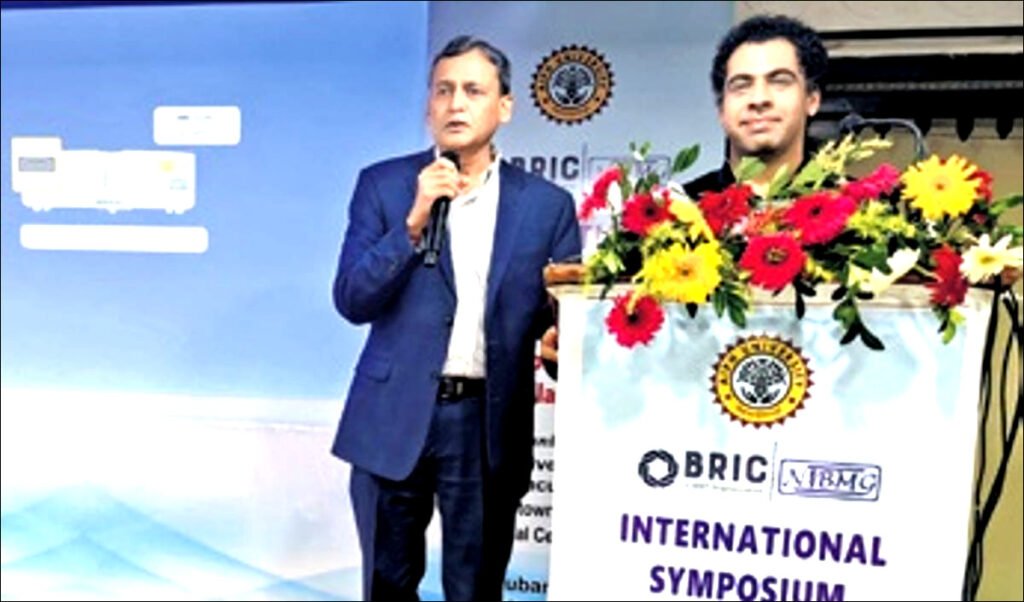Bhubaneswar: In an era where artificial intelligence (AI) and machine learning (ML) are seamlessly weaving themselves into the very fabric of healthcare, specialists convened on Tuesday to echo a resounding belief: a revolution in global healthcare is imminent, spurred by AI’s potential to transform treatment paradigms and fuel research and innovation.
At an international symposium focused on Data Science in Translational Medicine and Population Health — a collaboration between AIPH Research Endeavours and the National Institute of Biomedical Genomics (NIBMG) in Kalyani — Nima Aghaeepour, an associate professor from Stanford University, illuminated the immense promise that translational medicine holds in harnessing the power of AI and ML. This domain, he explained, is all about bridging the chasm between groundbreaking research and its clinical applications, and it stands to gain tremendously from these advanced technologies.
“The implications are profound,” Aghaeepour asserted. “AI and ML are set to provide avant-garde instruments for researchers, clinicians, and public health officials alike. These tools will empower them to make astute, data-driven choices that not only enhance patient care but also elucidate health trends and tackle public health emergencies with unprecedented efficacy.”
He went on to unveil a fascinating case where AI/ML could diagnose conditions such as pre-term birth and chorioamnionitis using solely historical hospital data — a paradigm shift that negates the need for invasive blood tests or chemical evaluations.
Adding to this discourse, Dr. Pinaki Panigrahi, a professor of pediatrics at Georgetown University Medical Center, painted a vivid picture of the complexities arising from today’s environmental exposures — diet, climate change, and air pollution forming a tangled web that complicates biological responses. “The interplay of these multifaceted influences produces responses within the body that are intricately connected and nearly indecipherable through traditional biostatistical methods, like multiple regression analysis,” he lamented. “Artificial intelligence and machine learning emerge as crucial allies in navigating this data labyrinth, already showcasing remarkable potential for faster disease diagnoses and even predictions long before clinical symptoms manifest.”
Dr. Saroj Kant Mohapatra from NIBMG chimed in, emphasizing the value of technology-driven predictive models. “We can truly grasp disease propagation,” he explained, “by meticulously analyzing emerging patterns in patient data.”
Finally, Shasha Jumbe, CEO of Level 42 AI—a firm rooted in the United States—concluded with palpable optimism, highlighting that the integration of AI and ML into translational medicine and population health signifies a monumental leap for modern healthcare. The future looks not only promising but exhilarating as we approach this uncharted territory where technology meets medicine.

